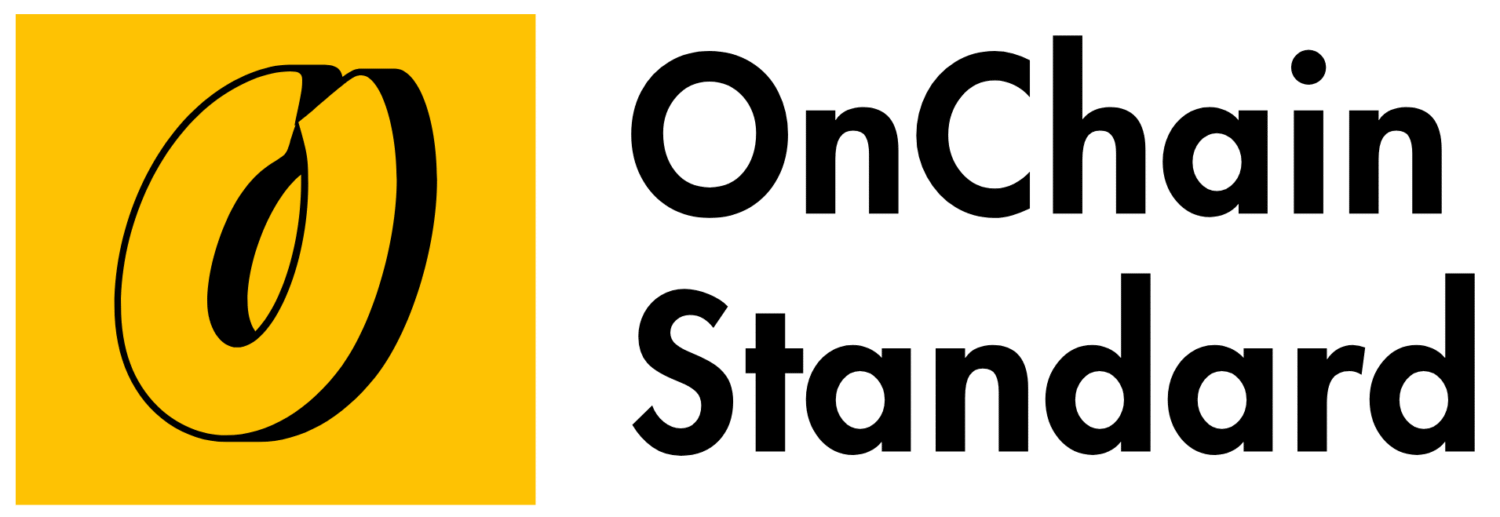National Bitcoin Reserves: Which Countries Are Betting on BTC in 2025?
Discover which countries hold Bitcoin reserves in 2025, including the U.S., El Salvador, and Bhutan. Learn their motivations, impacts on the $3T crypto market, and future trends.
Introduction
Bitcoin (BTC), often dubbed “digital gold,” has evolved from a niche cryptocurrency to a strategic asset for national treasuries. In 2025, governments worldwide are increasingly exploring Bitcoin reserves to hedge against inflation, diversify assets, and enhance financial sovereignty. Driven by Bitcoin’s fixed 21-million-coin supply and its resilience amid global economic challenges, countries are betting on BTC to reshape their reserve strategies. This article examines which nations are leading the charge, their motivations, and the implications for the crypto market.
What Are National Bitcoin Reserves?
National Bitcoin reserves refer to BTC held by governments or central banks as part of their strategic financial portfolios, similar to gold, foreign currencies, or bonds. Unlike traditional reserves, Bitcoin’s decentralized nature and capped supply make it a hedge against currency devaluation and geopolitical risks. Countries acquire Bitcoin through purchases, mining, seizures from illicit activities, or donations, aiming for long-term economic stability and diversification.
Top Countries Betting on Bitcoin in 2025
Below are the leading nations with significant Bitcoin reserves or active proposals to establish them, based on available data and developments in 2025:
- United States
- Holdings: ~200,000 BTC (~$21 billion as of January 2025), primarily from seizures related to criminal activities like the Silk Road and Bitfinex hack.
- Status: In March 2025, President Donald Trump signed an executive order establishing a Strategic Bitcoin Reserve, capitalizing on forfeited BTC to position the U.S. as the “crypto capital of the world.” The reserve also includes other cryptocurrencies like Ethereum and Solana.
- Developments: Senator Cynthia Lummis’ BITCOIN Act proposes acquiring 1 million BTC over five years, funded by diversifying federal assets. Sixteen U.S. states, including New Hampshire and Arizona, have introduced state-level BTC reserve legislation, with New Hampshire being the first to formalize a reserve in May 2025.
- Motivation: Hedge against $35 trillion national debt, reduce dollar reliance, and maintain financial leadership amid global BTC adoption.
- Impact: The U.S. holds the largest known BTC reserve, driving market confidence and institutional adoption.
- El Salvador
- Holdings: ~6,102 BTC (~$550 million as of March 2025), acquired through regular purchases since 2021.
- Status: The first country to adopt Bitcoin as legal tender in 2021, El Salvador maintains a public Bitcoin-only reserve under President Nayib Bukele’s leadership.
- Developments: The government uses geothermal energy for Bitcoin mining and plans to build Bitcoin City, powered by volcanic energy. Despite low domestic adoption (only 20% of businesses accept BTC), the reserve has yielded significant returns as BTC prices soared past $100,000 in 2024.
- Motivation: Attract foreign investment, enhance financial inclusion, and reduce reliance on the U.S. dollar (El Salvador is dollarized).
- Impact: El Salvador’s success inspires other nations, though critics highlight volatility and limited local usage.
- Bhutan
- Holdings: ~13,029 BTC (~$1.4 billion as of January 2025), accumulated through state-backed mining since 2019.
- Status: Bhutan’s sovereign investment arm, Druk Holding & Investments, mines BTC using surplus hydroelectric power, holding over one-third of the country’s GDP in crypto.
- Developments: In 2023, Bhutan sold $100 million in BTC to double civil servant salaries, addressing brain drain amid economic challenges. The country is also building Gelephu Mindfulness City, a crypto-friendly economic hub.
- Motivation: Diversify revenue beyond hydropower exports, combat economic stagnation, and retain skilled workers.
- Impact: Bhutan’s low-profile strategy has yielded massive returns, positioning it as a model for small nations.
- China
- Holdings: ~194,000 BTC (~$20.4 billion as of January 2025), primarily from seizures related to illicit activities.
- Status: Despite a ban on crypto trading and mining, China holds significant BTC from law enforcement actions. There’s speculation that China may have sold its entire stash, but no official confirmation exists.
- Developments: No strategic reserve policy is in place, and holdings are not counted as economic assets due to regulatory restrictions.
- Motivation: Primarily incidental (seizures), with no clear intent to use BTC as a reserve asset.
- Impact: China’s holdings influence market dynamics, but lack of strategic intent limits their geopolitical leverage.
- United Kingdom
- Holdings: ~61,000 BTC (~$6.4 billion as of January 2025), acquired through anti-money laundering operations.
- Status: Like China, the UK holds BTC from seizures, not as a deliberate reserve strategy.
- Developments: No proposals for a strategic Bitcoin reserve exist, and seized BTC is typically auctioned.
- Motivation: Incidental accumulation through law enforcement, not economic strategy.
- Impact: Minimal, as the UK does not treat BTC as a reserve asset.
- Ukraine
- Holdings: ~46,351 BTC (~$4.9 billion as of January 2025), largely from donations supporting defense and humanitarian efforts.
- Status: Ukraine’s BTC holdings stem from global crypto donations during its conflict with Russia, not a formal reserve policy.
- Developments: No active proposals for a strategic reserve, but Ukraine’s crypto-friendly stance suggests potential future adoption.
- Motivation: Support war efforts and humanitarian aid, with possible future diversification goals.
- Impact: Demonstrates crypto’s role in crisis response, boosting global awareness of BTC’s utility.
- Czech Republic
- Holdings: No confirmed BTC holdings as of January 2025.
- Status: The Czech National Bank is exploring BTC as part of its foreign exchange reserve diversification, considering up to 5% of its $146 billion reserves. The proposal awaits approval from the bank’s seven-member board.
- Developments: Governor Aleš Michl’s January 2025 announcement signals growing European interest, but no acquisitions have been confirmed.
- Motivation: Diversify reserves and hedge against currency instability.
- Impact: Early-stage discussions could legitimize BTC among European central banks if approved.
- Brazil
- Holdings: No confirmed BTC holdings as of 2025.
- Status: The Sovereign Strategic Bitcoin Reserve (RESBit) bill, proposed in November 2024, aims to allocate 5% of Brazil’s international reserves to BTC, managed by the Central Bank and Ministry of Finance. The bill is under legislative review.
- Developments: The proposal emphasizes cold wallet storage and backing Brazil’s CBDC, Drex, to enhance economic resilience.
- Motivation: Reduce exposure to exchange rate fluctuations and geopolitical risks.
- Impact: If passed, Brazil could set a precedent for Latin American BTC adoption.
- Russia
- Holdings: No confirmed BTC holdings as of 2025.
- Status: In December 2024, Russian State Duma deputy Anton Tkachev proposed a strategic Bitcoin reserve, citing BTC’s utility in bypassing sanctions. The proposal follows Russia’s legalization of crypto mining and international payments.
- Developments: President Putin’s praise for BTC as an alternative to fiat reserves fuels speculation, but no concrete actions have been taken.
- Motivation: Circumvent Western sanctions and reduce reliance on the U.S. dollar and Chinese yuan.
- Impact: Russia’s adoption could accelerate de-dollarization trends, influencing emerging markets.
- Switzerland
- Holdings: No confirmed BTC holdings as of 2025.
- Status: A citizen-led initiative, launched in 2024, proposes mandating the Swiss National Bank (SNB) to hold BTC alongside gold. It requires 100,000 signatures by mid-2026 for a referendum. The SNB rejected a similar proposal, citing BTC’s volatility.
- Developments: As of February 2025, signature collection is progressing, reflecting Switzerland’s crypto-friendly ethos.
- Motivation: Enhance financial sovereignty and align with Switzerland’s innovation-driven economy.
- Impact: A successful referendum could make Switzerland the first nation to officially hold BTC as a reserve asset.
- Pakistan
- Holdings: No confirmed BTC holdings as of April 2025.
- Status: In 2025, Pakistan announced plans to establish a strategic Bitcoin reserve, joining the global trend of sovereign BTC adoption.
- Developments: Details remain sparse, but the move aligns with Pakistan’s efforts to modernize its financial system.
- Motivation: Hedge against inflation and currency devaluation amid economic challenges.
- Impact: Could inspire other South Asian nations to explore BTC reserves.
Other Countries Exploring Bitcoin Reserves
Several nations are in early discussions or have proposed BTC reserves, including:
- Argentina, Hong Kong, Japan: Parliaments introduced bills to allow central banks to hold BTC, with Japan’s Government Pension Investment Fund exploring diversification into BTC.
- Poland: Presidential candidate Sławomir Mentzen advocates for a BTC reserve, though support is uncertain.
- South Africa: The opposition MKP party pushes for a BTC reserve to reduce U.S. dollar reliance.
- Venezuela, Nigeria, Kazakhstan: Listed among countries exploring reserves, driven by economic instability and de-dollarization goals.
Motivations for National Bitcoin Reserves
Countries are betting on BTC for several reasons:
- Inflation Hedge: Bitcoin’s fixed supply counters fiat currency devaluation, appealing to nations like El Salvador and Pakistan.
- Diversification: BTC reduces reliance on traditional assets like the U.S. dollar or gold, as seen in Brazil and the Czech Republic.
- Geopolitical Strategy: Russia and Bhutan use BTC to enhance sovereignty and bypass sanctions or economic constraints.
- Economic Innovation: The U.S. and Switzerland aim to lead in digital finance, leveraging BTC to attract investment and talent.
- Crisis Response: Ukraine’s BTC donations highlight crypto’s utility in emergencies, inspiring strategic adoption.
Challenges and Risks
Despite enthusiasm, national BTC reserves face hurdles:
- Volatility: Bitcoin’s price fluctuations (e.g., 65% drawdowns) raise concerns for central banks, as noted by Switzerland’s SNB.
- Regulatory Barriers: The U.S. Federal Reserve cannot legally hold BTC without legislative changes, and similar restrictions apply globally.
- Security Risks: Custody of large BTC holdings requires robust cybersecurity, a concern for smaller nations like Bhutan.
- Skepticism: Economists question BTC’s intrinsic value and economic benefits, potentially slowing adoption.
- Legislative Delays: Proposals in Brazil and Russia face complex approval processes, delaying implementation.
Impact on the Bitcoin Market
National BTC reserves have profound implications:
- Price Appreciation: Government buying (e.g., U.S. acquiring 1 million BTC) could drive BTC prices higher, with BTC surpassing $100,000 in 2024.
- Legitimization: Adoption by nations like the U.S. and Switzerland boosts BTC’s credibility, attracting institutional and retail investors.
- Global Adoption: As countries like Bhutan and El Salvador profit, others may follow, increasing BTC’s share of global reserves (currently ~2.3%).
- Market Volatility: Speculation around reserve proposals (e.g., Polymarket’s 53% chance of U.S. reserve by year-end) fuels short-term price swings.
- Geopolitical Shifts: Russia’s potential reserve could accelerate de-dollarization, reshaping global finance.
The Future of National Bitcoin Reserves in 2025
In 2025, the “Bitcoin race” is intensifying, with nations vying for strategic advantages.
- U.S. Leadership: If the BITCOIN Act passes, the U.S. could hold 1 million BTC by 2030, cementing its dominance.
- Emerging Markets: Countries like Brazil, Pakistan, and Nigeria may adopt reserves to address economic instability.
- European Momentum: The Czech Republic and Switzerland could pave the way for European central banks to embrace BTC.
- Corporate Parallels: Over 80 public companies hold BTC, signaling broader institutional confidence that may pressure governments to act.
- Game-Theoretic Pressure: As early adopters like Bhutan gain, others risk falling behind, echoing the gold rush of past centuries.
Conclusion
National Bitcoin reserves mark a paradigm shift in global finance, with countries like the United States, El Salvador, and Bhutan leading the charge in 2025. Driven by inflation fears, diversification needs, and geopolitical strategies, nations are betting on BTC’s scarcity and resilience. While challenges like volatility and regulation persist, the growing adoption of Bitcoin reserves signals its transformation into a mainstream reserve asset. For crypto investors and policymakers, tracking these developments is crucial to navigating the evolving Bitcoin landscape.




